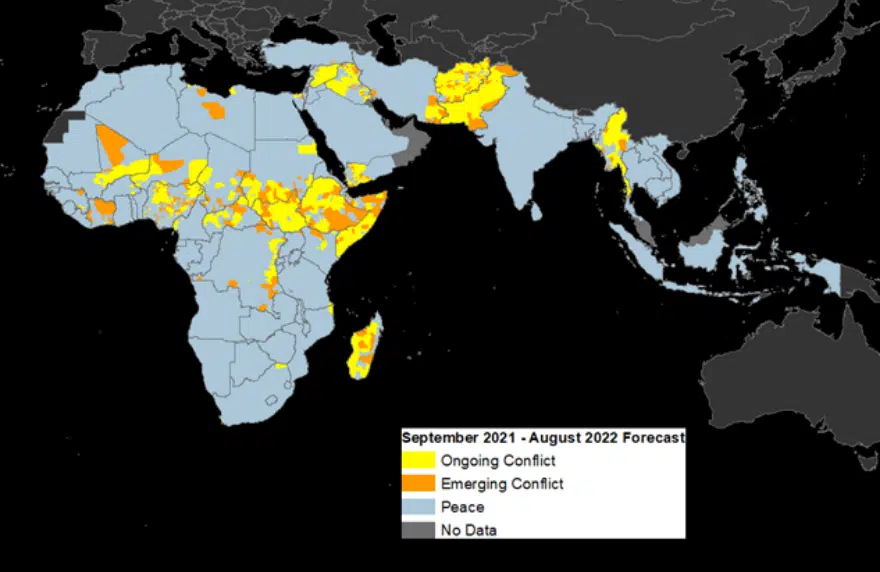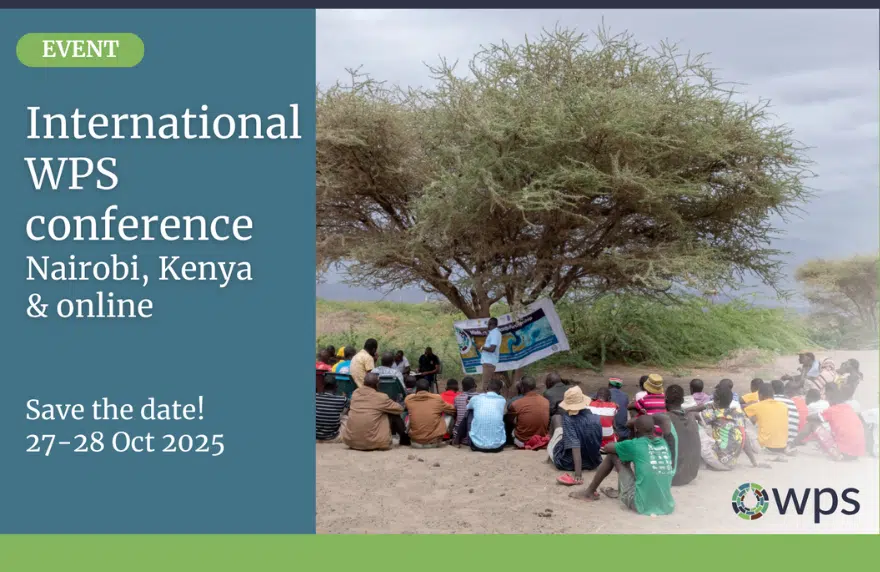An analysis of global indicators shows that much of Syria and Iraq remain at risk of conflict over water-related matters, according to a new quarterly update that summarizes findings from an early warning tool.
The tool, developed and maintained by the Water, Peace and Security (WPS) partnership, applies machine learning to predict possible water-related conflict up to a year in advance. Its latest update is based on September 2021 data and predicts conflict in areas including southern Iran, along the borders with Afghanistan and Pakistan; northern Ethiopia; northern Kenya and throughout most of South Sudan.
The WPS Global Early Warning Tool, launched in 2019, regularly analyses 15-20 global indicators, proven to be the most significant from among more than 200 considered.
In the most recent update, it predicted ongoing conflict throughout most of Syria over the next 12 months aside from portions of eastern Syria. It predicted emerging and ongoing conflict throughout much of Iraq over the next 12 months. Still, in compared to a year ago, the chance for peace in the region has increased, even as a regional drought intensifies.
Drought was the main factor in the conflict predictions for Syria, Iraq and several other areas, said WPS leader Susanne Schmeier, IHE Delft Associate Professor in Water Law and Diplomacy.
“On-going droughts – whether temporary developments or part of longer-term effects of global climate change – do not only immediately affect people’s lives and livelihoods, but also continuously increase the risk of instability, government delegitimization, competition and conflict, especially if not mitigated well by capable governance institutions,” she said.
In India and other parts of South Asia and Southeast Asia – excluding Myanmar – the model now predicts peace, a significant improvement from last year. This could be linked to the Covid-pandemic and its possible correlation with the number of conflicts in the area, the WPS team – which also includes experts from the World Resources Institute, Deltares, The Hague Centre for Strategic Studies, Wetlands International and International Alert – states in the update.
In another change compared to a year ago, the tool now predicts mostly peace in south-eastern Turkey. The country has used dams in the Tigris and Euphrates rivers to collect water to support regional electric power production and agricultural development.
“This could mean that Turkey’s water resources development projects indeed contribute – at least short term – to alleviating the domestic water crisis and mitigating conflict risks related to it,” the update states. “This does, however, seem to come at the expense of other countries in the basin as well as regional cooperation and stability.”
About the Water, Peace and Security partnership
The WPS partnership was set up in 2018 to pioneer the development of innovative information tools and practical approaches that can support local and international actors who work in high-risk areas. These tools and approaches can help predict and prevent water-related security threats in a timely manner. The WPS partnership includes an expanding group of organizations supported by The Netherlands Ministry of Foreign Affairs and the German Gesellschaft für Internationale Zusammenarbeit (GIZ). The current partners include: IHE Delft (lead), World Resources Institute, Deltares, The Hague Centre for Strategic Studies, Wetlands International and International Alert. In addition, the consortium collaborates with a growing number of other organizations, including: Oregon State University and Clingendael – the Netherlands Institute of International Relations.







